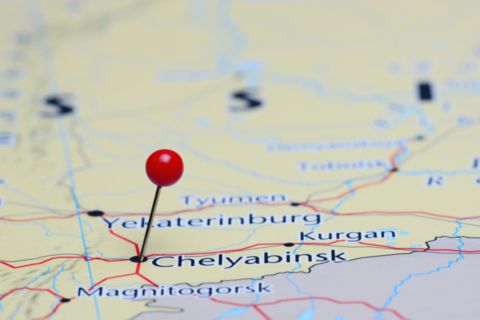In the Year of Science and Technology, July is a month of territorial connectivity and space development. The South Urals historically retains the role of a transit zone for migrants, is located between Asia and Europe. Senior Researcher at the SUSU Migration Research Laboratory Andrey Avdashkin and Yulia Khmelevskaya, Director of the Scientific and Educational Center Cultural and Historical Research, told about labor migration in the region, relations between residents and migrants, as well as migration processes in general.
Monitoring the migration situation in the region
Over the millennia, migrations have always been a part of the history of Mankind. In the modern world, migration problems acquire social acuteness and often lead to conflicts and legal contradictions. There is a noticeable intensification of political processes under growing economic competition, and an aggravation of the epidemiological situation.
Among other things, migration is associated with a whole range of negative stereotypes and phobias. These processes and their accompanying cultural practices are studied at SUSU by the Migration Research Laboratory of the Institute of Media Social Sciences and Humanities. The scientists are currently implementing the project Asian vector of migration to the Chelyabinsk region: a historical retrospective, forecasts and risks with the support of a grant from the Russian Foundation for Basic Research and the Chelyabinsk oblast.
- Analysis of the information and monitoring data gathered in the region significantly corrects common biases. Thus, the basis of migration to the South Urals is made up of immigrants from the states of Central Asia - first of all, Kazakhstan, Tajikistan, and Uzbekistan with a much smaller, compared to other regions, the presence of Kyrgyz and Caucasians. Contrary to the idea of a predominantly ethnic and foreign-language nature of migration, the bulk of migrants in our region are Russian-speaking residents of northern Kazakhstan while the representation of residents of Tajikistan and Uzbekistan is predominantly temporary. And according to official data, in general, the total number of labor migrants at different stages fluctuates from about 16 to 32 thousand, not exceeding the share of 3-5% in the regional labor market, which does not give grounds to talk about the replacement of the local labor force, - Andrey Avdashkin says.

Migration is not a problem but a resource for development
As for the painful topic of migrant crime, the share of crimes committed by foreign citizens in the region in 2019 and 2020 does not exceed 2-3% of registered offenses.
Fears about the likelihood of the appearance of religious and ethnic enclaves capable of turning into independent agents of influence or criminal ghettos are not confirmed either.
- However, despite the stable ethnic-confessional and migration situation in the region, for the early warning of interethnic conflicts, on the one hand, constant monitoring is required, and on the other, a change in the society's attitude. It is essential to understand that migration is not a problem but a resource for the development of the country and region. It requires large-scale educational work on both sides because the integration of migrants is a two-way process, - Yulia Khmelevskaya comments.
The Migration Research Laboratory researches in several main areas:
the reconstruction of regulating migration flows, methods and techniques for managing large moving human masses, and the study of security technology and humane transportation methods to develop the right solutions to modern problems. The analysis and generalization of the historical experience of solving migration problems in the past, the study of migration processes based on archaeological and historical material become really important. The research aims at identifying universal patterns and unique phenomena, diagnoses forms, and incentives of migration, its role in the formation of cultural stereotypes and social structures based on the results of multidisciplinary research.
South Ural State University (SUSU) is a university of digital transformations, where innovative research in most of the priority areas of development of science and technology is carried out. Following the strategy of scientific and technological development of the Russian Federation, the university focuses on the development of large scientific interdisciplinary projects in the field of the digital industry, materials science, and ecology. In the Year of Science and Technology, SUSU takes part in the competition under the Priority-2030 program. The university performs as a regional project office of the Ural interregional world-class scientific and educational center.




